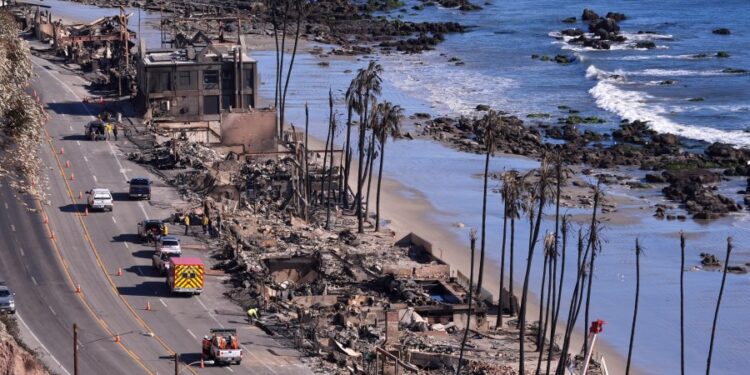Federal Reserve Chair Jerome Powell testified before the Senate Banking Committee on Tuesday, mostly about interest rates, which he normally discusses. However, during the question and answer period, Sen. Tina Smith (D-Minnesota) asked about the availability of mortgages in disaster-prone states like California.
Here’s what Powell had to say:
“Those banks and insurance companies are pulling out of areas, coastal areas and … areas where there are a lot of fires,” Powell told the committee. “So what that’s going to mean is if you fast-forward 10 or 15 years, there are going to be regions of the country where you can’t get a mortgage. There won’t be ATMs, the banks won’t have branches and things like that.”
Let’s chew on that. The Fed chair is observing that insurance is becoming increasingly difficult to get in states like California, and he says in about a decade from now, you might not be able to get a mortgage in some areas. That’s simply mind-blowing, and he’s not wrong.

Mortgage lenders will not extend loans to people unless they have insurance lined up. If you don’t have insurance, you’re not going to get a mortgage.
Powell is making the obvious observation that if things play out as they are, there is no financial incentive to issue home loans in places like California. This really underlines what I’ve been saying for a long time now: climate change and multi-billion dollar disasters like the Los Angeles fires are simply beyond the scope of most private insurers to manage.
You need to spread the risk among the entire population, which means something like a Medicare-for-all approach to property coverage. This is to keep premiums affordable, similar to what we’ve seen on the healthcare front with single-payer systems: spread the risk among the entire population, and they’re able to manage it.
In the United States, which doesn’t do that, we have the highest prices in the world. Powell is observing that if we can’t moderate the risk of insurance in some way so that mortgage lenders feel more comfortable, we don’t get mortgages. That obviously creates a very dire situation, as Powell said.
“It will fall on homeowners, residents, but also on state and local governments. What you see happening is that where private insurance is going away, states are stepping in because they want those areas to remain prosperous,” Powell noted.
In short, this isn’t just a problem for policyholders or would-be policyholders; it’s a problem for taxpayers as well.







